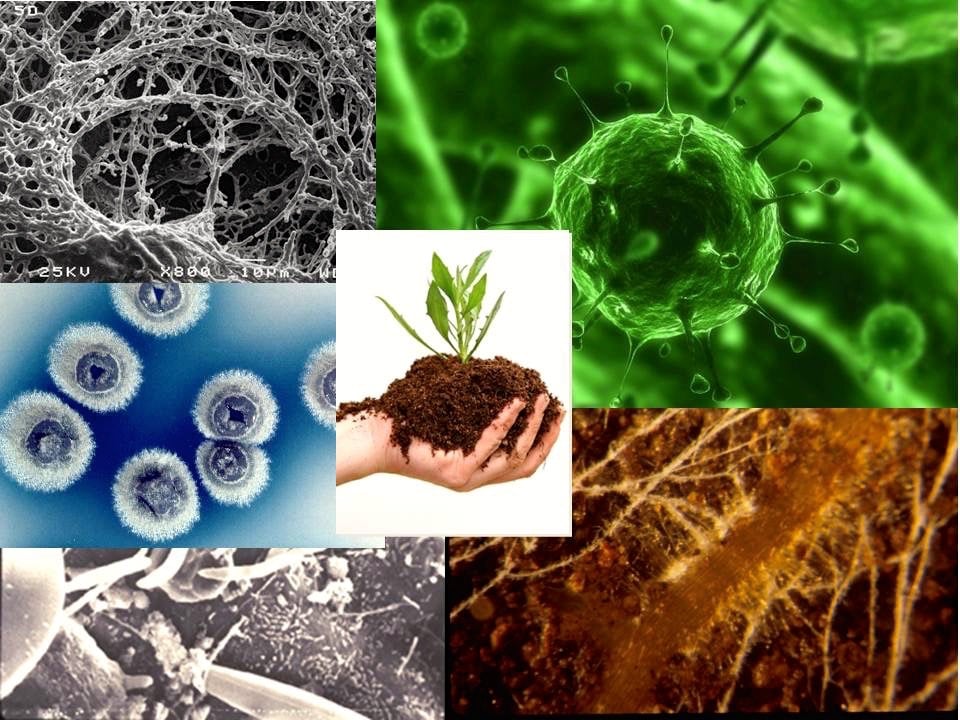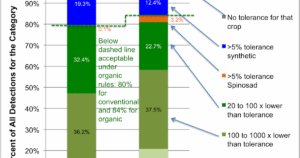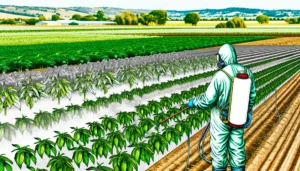
soil microorganisms.jpg

Definition:
Soil microorganisms encompass a diverse array of microscopic organisms inhabiting the soil environment, including bacteria, fungi, archaea, and protists. These tiny organisms play crucial roles in nutrient cycling, organic matter decomposition, and soil fertility.
Beneficial Guidance:
Understanding the role of soil microorganisms is essential for farmers as it allows them to harness the services of these organisms to improve soil health and agricultural productivity. By promoting a diverse and thriving community of soil microorganisms, farmers can enhance nutrient availability, suppress plant diseases, and build soil organic matter.
Fall off the barn roof and busted your keister? Life on the farm or ranch can be tough on the bum. Need a break? Laugh it off at FarmerCowboy.com, the #1 farm humor site. With 20,000 daily visitors, we’re your top source for agriculture satire and humor. Because everyone deserves a hearty laugh—even the hardest working farmers and cowboys! Join us and turn those long days into fun tales at FarmerCowboy.com.
Enlightening Details:
- Bacteria: Soil bacteria are among the most abundant and diverse microorganisms in the soil, performing functions such as nitrogen fixation, nutrient mineralization, and organic matter decomposition. Certain bacterial species also form symbiotic relationships with plant roots, enhancing nutrient uptake and plant growth.
- Fungi: Soil fungi play key roles in decomposing complex organic compounds, such as lignin and cellulose, into simpler forms that can be utilized by plants and other soil organisms. Mycorrhizal fungi form mutualistic associations with plant roots, facilitating nutrient exchange and enhancing plant resilience to environmental stresses.
- Archaea and Protists: Archaea are ancient microorganisms that inhabit extreme environments, while protists include a diverse group of single-celled organisms such as amoebae and ciliates. Although less studied compared to bacteria and fungi, archaea and protists contribute to nutrient cycling and soil food web dynamics.
Actionable Suggestions:
- Organic Matter Management: Incorporating organic amendments such as compost, manure, and cover crops provides a source of energy and nutrients for soil microorganisms, supporting their growth and activity.
- Minimize Soil Disturbance: Reduced tillage practices help preserve soil structure and microbial diversity by minimizing disruptions to soil habitats and microbial communities.
Informative Tips:
- Biocontrol: Certain soil microorganisms, such as certain bacteria and fungi, have antagonistic effects on plant pathogens, offering natural alternatives to chemical pesticides for disease management.
- Soil Health Monitoring: Regular soil testing and microbial analysis can provide insights into soil microbial populations and activities, allowing farmers to assess soil health and make informed management decisions.
References:
- Philippot, L., Raaijmakers, J. M., Lemanceau, P., & van der Putten, W. H. (2013). Going back to the roots: the microbial ecology of the rhizosphere. Nature Reviews Microbiology, 11(11), 789-799. Link
- Hartmann, M., Frey, B., Mayer, J., Mäder, P., & Widmer, F. (2015). Distinct soil microbial diversity under long-term organic and conventional farming. The ISME Journal, 9(5), 1177-1194. Link
- Fierer, N. (2017). Embracing the unknown: disentangling the complexities of the soil microbiome. Nature Reviews Microbiology, 15(10), 579-590. Link
Originally posted 2014-05-28 06:42:57.
Originally posted 2024-07-01 13:04:27.
Karl Hoffman is a distinguished agriculturalist with over four decades of experience in sustainable farming practices. He holds a Ph.D. in Agronomy from Cornell University and has made significant contributions as a professor at Iowa State University. Hoffman’s groundbreaking research on integrated pest management and soil health has revolutionized modern agriculture. As a respected farm journalist, his column “Field Notes with Karl Hoffman” and his blog “The Modern Farmer” provide insightful, practical advice to a global audience. Hoffman’s work with the USDA and the United Nations FAO has enhanced food security worldwide. His awards include the USDA’s Distinguished Service Award and the World Food Prize, reflecting his profound impact on agriculture and sustainability.



